
Your heart risk rises
Heart disease is the number one killer in the United States, responsible for nearly one in four deaths, reports the Centers for Disease Control and Prevention (CDC). While men have been getting the message about heart risk, women are still catching up, reveals a survey from HeartFlow, a medical technology company: More than half of women don’t realize that heart disease is their biggest threat; most believe other health problems like breast cancer and strokes are the leading causes of death.
About the same number of men and women die from heart disease every year, according to the CDC—and risk really takes a jump at midlife: At around 45 years of age, a man’s risk of a heart attack begins to climb steadily; the average age for a man to suffer a heart attack is 66. For women, menopause—which usually kicks in around age 50—can lead to heart and artery changes that raise the likelihood of cardiac disease.
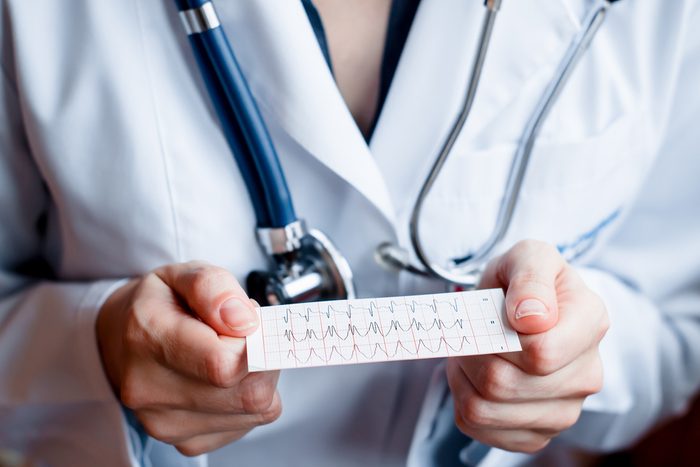
Men and women: Your heart hardens
Starting around 50, the heart muscle begins to stiffen up, making it tougher to pump blood efficiently throughout the body, according to the Cleveland Clinic. The medical term for the phenomenon is diastolic dysfunction: The muscle isn’t able to relax after each beat, increasing wear and tear. For women, hormonal changes can make matters worse: “When estrogen levels decline, women often develop stiffening of the heart muscle,” says integrative cardiologist Regina Druz, MD, FAC, IFMCP, of the Integrative Cardiology Center of Long Island. Don’t delay in seeking help if you have the hallmark symptoms such as shortness of breath, fatigue, swelling in the legs, ankles, and feet, rapid heartbeat, and coughing up pink and foamy mucus. Women, watch out for these sneaky heart attack symptoms.

Women: Lower estrogen drives up heart risk
Estrogen is essential for the maintenance of a lot of body functions, including reproductive health, bone development, mood management, and heart health. When menopause hits—usually between the ages of 50 and 54—estrogen takes a nose dive. “With a decline in estrogen levels, several things happen in a woman’s body,” says cardiologist Kavitha Chinnaiyan, MD, director of Cardiac Imaging Research and associate professor of medicine at Beaumont School of Medicine. “Many of these changes result in the development of risk factors for heart disease, including high blood pressure, high cholesterol, and diabetes,” she says. Here are 10 surprising health risks that happen after menopause.
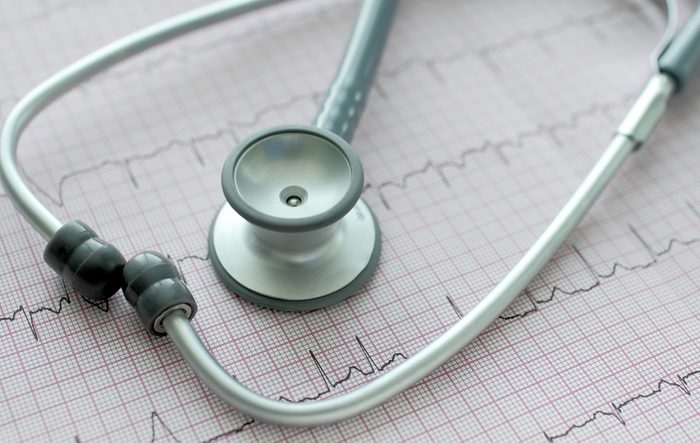
Men and women: Heartbeat becomes irregular
Arrhythmias are fairly common and most people experience one at some point, such as when you drink too much caffeine, take cold or cough medicine, or someone startles you. The risk increases with age—Dr. Druz notes that shifts in estrogen levels can lead to an arrhythmia. If the irregularity continues or happens frequently, call your doctor to get checked, especially if you experience shortness of breath, faintness, chest pain, or lightheadedness. And be sure to practice good self-care; don’t miss the heart disease risk factors most people don’t know about.

Women: You’re at higher risk of a broken heart
Broken hearts might seem like the stuff of pop songs, but heartbreak can hurt your heart. Getting the news that someone close to you has died, being in an accident, experiencing a natural disaster, or undergoing any extreme stress can trigger this phenomenon. Basically, stress hormones interrupt the heart’s normal rhythm in one particular part of the muscle. Thankfully, it’s rarely fatal, though the symptoms of chest pain and shortness of breath can feel like a heart attack. More than 90 percent of reported cases of broken heart syndrome occur in women between the ages of 58 and 70, reports Harvard Health. Always see a doctor if you have these symptoms, especially when dealing with stressful life events. But be reassured that most people do recover from this syndrome with no long-term heart damage.
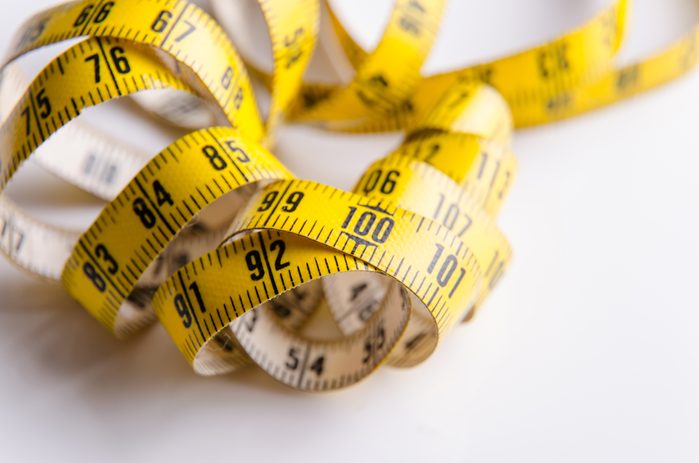
Men and women: A widening waist stresses the heart
It’s just not fair—metabolism slows down as you get older. That, plus the age-related declines in muscle mass and activity, means you can pack on pounds even if you don’t eat more calories. That extra weight can boost your risk for high cholesterol, inflammation, and obesity—all risk factors for heart disease. For women, the decline in estrogen can mean you’ll gain weight more like a man—in your midsection as opposed to your hips and thighs, according to the Mayo Clinic. This so-called visceral fat snugs up to vital organs like the liver and heart, raising the risk of chronic conditions like fatty liver disease, diabetes, and—yes—heart disease. End the vicious cycle with exercise—especially strength training. Here are some foods that actually fight belly fat.
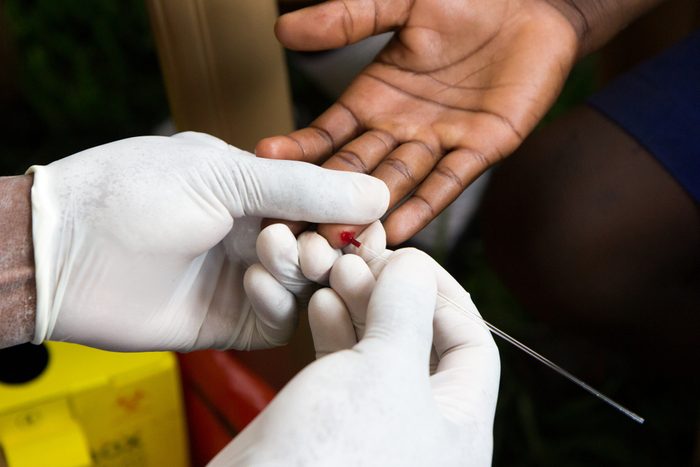
Women: Lower estrogen equals higher cholesterol
Those female hormones—especially estrogen—do a lot of nice things for your heart, including help manage your cholesterol. As hormone levels dip in your 50s, says Dr. Chinnaiyan, “the bad cholesterol starts to increase and the good cholesterol starts to decrease.” If you don’t make adjustments to your diet and lifestyle, you could experience inflammation in heart arteries that, combined with poor cholesterol, result in the formation of blockages, she warns. Keep your weight in check, exercise, and follow these rules for eating an anti-inflammatory diet.

Men and women: Poorer sleep allows plaque to build
As you age, your brain and neurons begin to change and your “sleep architecture” suffers, reports the National Sleep Foundation. That means you’re more prone to waking up during the night and less likely to get the deep sleep your heart needs to function properly. Women also have to battle the symptoms of pre-menopause and menopause—hot flashes are notorious for wrecking your slumber. The issue is that a sound snooze is good for your heart: “Shorter sleep duration and poorer quality of sleep seem to be associated with increased stiffness of the arteries and increased cholesterol plaque, especially in the carotid arteries,” says cardiologist Christine Jellis, MD, PhD, Heart and Vascular Institute, Cleveland Clinic. If you’re tossing and turning, try one of these natural sleep remedies.
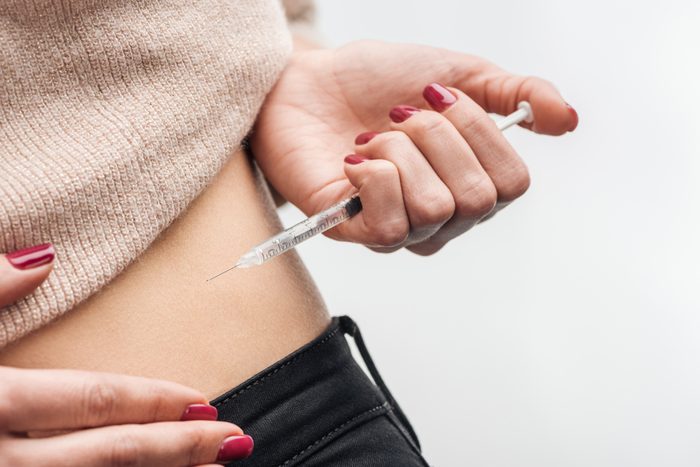
Women: Fading hormones hamper insulin
Guess what else estrogen messes with? Other hormones such as insulin, which manages blood sugar. Before your 50s, estrogen assists insulin in managing glucose (blood sugar). “Menopause can lead to reduced insulin secretion and increased insulin resistance, which also results in an increased likelihood for development of diabetes in susceptible individuals,” says Dr. Jellis. Diabetes can be very hard on your heart, contributing to large blood vessel damage associated with cardiovascular issues such as stroke and heart disease; it also deteriorates small blood vessels of the eyes, heart, nerves, feet, and kidneys. Take a look at these ways to help lower your risk of diabetes.
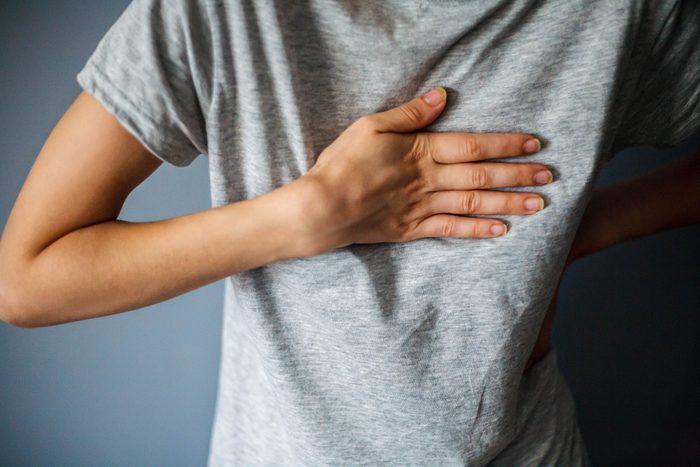
Men and women: Heart vessels narrow
Coronary microvascular disease (MVD) is the narrowing of small blood vessels that branch off from your main coronary arteries. Also known as small vessel disease, MVD can interfere with blood flow. “Patients feel typical angina or chest pain but do not have blockages in the larger vessels,” says cardiologist Caitlin Giesler, MD, director of the Women’s Heart Center at the Seton Heart Institute. MVD is most common in women, especially after menopause when estrogen levels have fallen. Some symptoms can be shortness of breath, chest pain, and feeling like you’re about to pass out; if you experience any of these—especially accompanied by chest pain—call for help immediately. A healthy lifestyle and medications can improve MVD, says Dr. Giesler. Check out what cardiologists do to protect their own hearts.
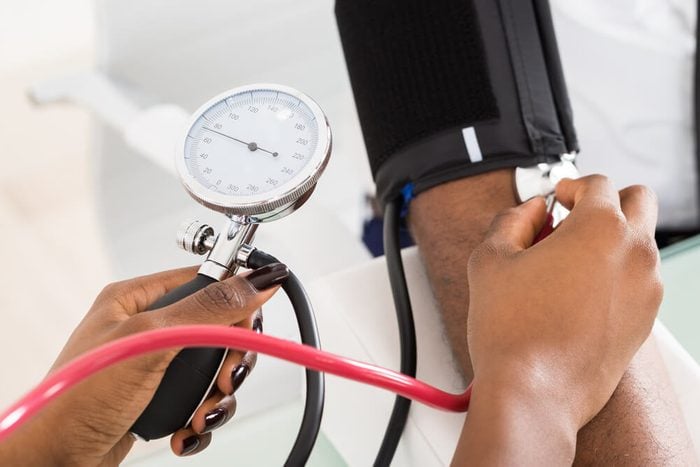
Men and women: Rising blood pressure stiffens artery walls
Your blood pressure naturally rises as you age, according to experts at Johns Hopkins Medicine. The increased pressure stresses and stiffens artery walls, leading to additional rises in blood pressure and increasing your risk of blockages. For women, the decline in estrogen undermines flexibility in your arteries. “This stiffness also occurs within the heart chambers, resulting in increased stress for the heart,” Dr. Chinnaiyan says. Often people don’t realize their heart is stressed because high blood pressure doesn’t have any outward symptoms. In the background though, it’s silently damaging blood vessels, heart muscle, and significantly raising your risk of heart disease. Work with your doctor to keep an eye on your readings, and do these things to avoid high blood pressure.
